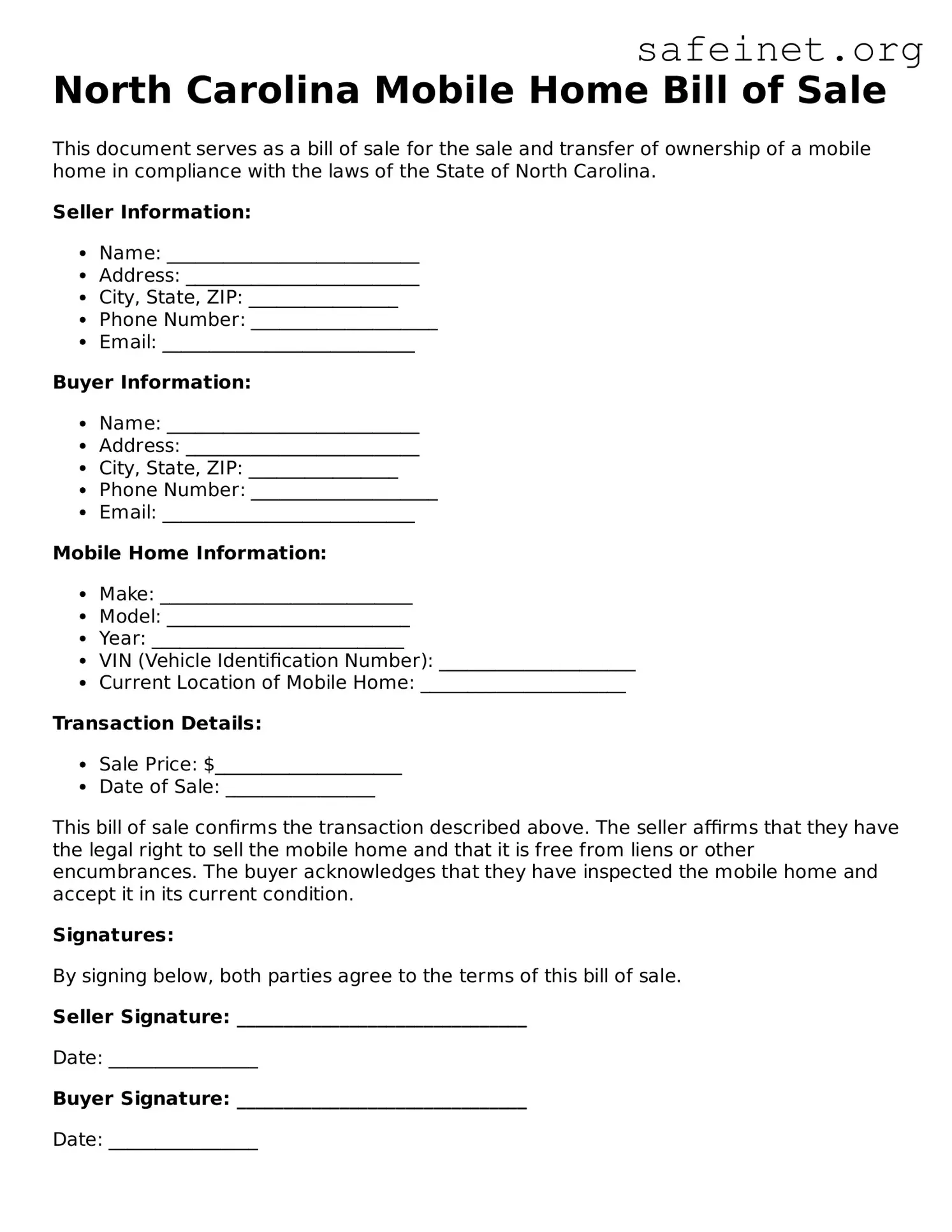What is a Mobile Home Bill of Sale in North Carolina?
A Mobile Home Bill of Sale is a legal document used to transfer ownership of a mobile home from one party to another. It serves as proof of the sale and details the transaction, including the identities of the buyer and seller, the description of the mobile home, and the sale price. This form is crucial for maintaining accurate records and protecting both parties' rights in the transaction.
Is a Mobile Home Bill of Sale required in North Carolina?
While a Mobile Home Bill of Sale is not strictly required by law, it is highly recommended. This document provides important legal protection and establishes clear terms of the sale. Without it, disputes may arise regarding ownership and sale details in the future.
What information should be included in the Bill of Sale?
The Bill of Sale should include several key pieces of information: the full names and addresses of both the buyer and seller, a description of the mobile home (including the VIN and make), the purchase price, the date of the sale, and any warranties or guarantees. In addition, both parties should sign the document to confirm their agreement.
Can I create my own Mobile Home Bill of Sale?
Yes, you can create your own Mobile Home Bill of Sale as long as it includes the necessary information. However, there are templates available online that can guide you in drafting this document properly. It is important to ensure that the form complies with North Carolina’s laws to avoid issues down the line.
Do I need to have the Bill of Sale notarized?
Notarization of the Mobile Home Bill of Sale is not required in North Carolina, but it can add an extra layer of authenticity and security. A notarized document may help in proving the legitimacy of the transaction if a dispute arises in the future. It is also advisable if you plan to register the mobile home with the DMV.
What do I do with the completed Bill of Sale?
After completing the Mobile Home Bill of Sale, both the buyer and seller should keep a copy for their records. The seller should provide the buyer with any additional necessary documents, like the title. When transferring ownership, the buyer will need to take the Bill of Sale and any other required paperwork to the DMV to officially register the mobile home in their name.
Are there any fees associated with the Mobile Home Bill of Sale?
There are generally no direct fees associated with creating a Mobile Home Bill of Sale itself. However, when registering the mobile home with the DMV, there may be fees associated with title transfer and registration. It’s important to check with local regulations for the exact fees involved.
What if there are issues after the sale?
If issues arise after the sale, such as disputes over ownership or undisclosed defects, the Mobile Home Bill of Sale can serve as evidence in resolving the matter. Depending on the situation, it may be necessary to seek legal advice or mediation to settle any disagreements. Keeping clear documentation and communication throughout the sale process can help minimize these issues.
How can I obtain a Mobile Home Bill of Sale form?
You can obtain a Mobile Home Bill of Sale form from various sources. Many online legal websites provide templates that you can download and customize. Additionally, local government offices or real estate associations may offer resources or samples to help you draft an appropriate Bill of Sale for your transaction.
